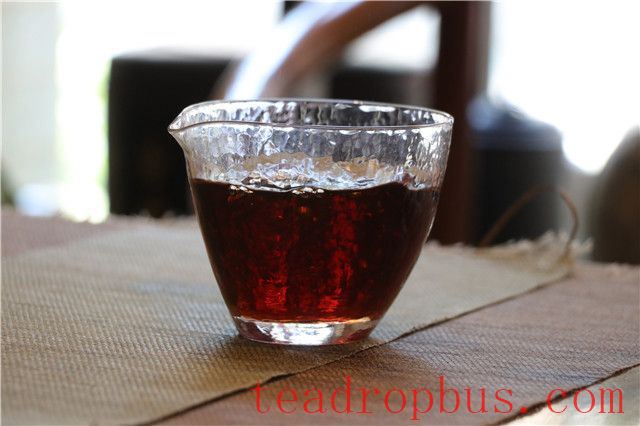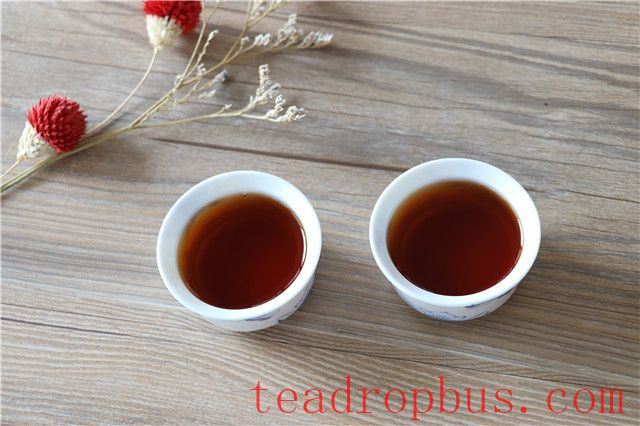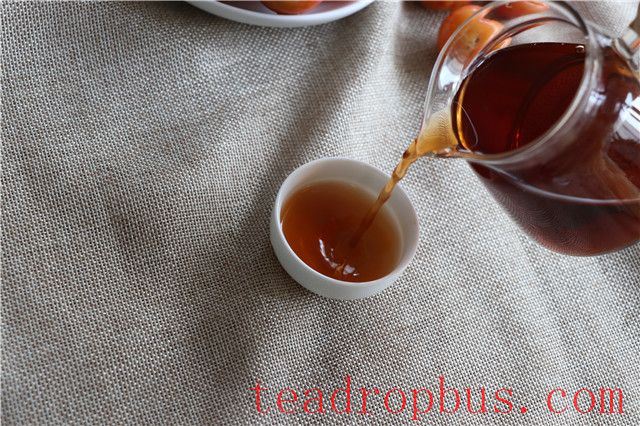Pu'er ripe Tea is a favorite among many tea enthusiasts, but brewing it requires skill. Paying attention to the details in the brewing process can make the tea soup taste better. Let's look at some precautions for daily brewing of ripe tea.

1. Tea too finely broken up
When breaking up the tea, it is usually required that the tea be relatively intact and in chunks. Of course, in the brewing process, a combination of whole and broken pieces can be used to balance the flavor. If there are too many small fragments in the dry tea, it can make the tea soup murky and overly bitter.
2. Not weighing the tea leading to improper amount of tea
Many tea enthusiasts may take the tea by hand without weighing it when brewing ripe tea, which can result in the tea being too strong or too weak. Therefore, it is recommended that when learning to Brew ripe tea, you should weigh an appropriate amount of dry tea according to the tea-to-water ratio.
3. Not rinsing the tea or rinsing it too many times
Whether to rinse the tea when brewing ripe tea is a very subjective matter. Tea enthusiasts can decide whether to rinse the tea and how many times based on their personal brewing habits. If you do rinse the tea, it is recommended to rinse ripe tea 1-2 times. Rinsing too many times can wash away the essence of the ripe tea and reduce its durability.

4. Not pre-soaking the tea
This specifically refers to new ripe teas (just out of the pile or freshly pressed) or some ripe teas stored in humid conditions. These types of teas may have some fermentation or storage odors initially, but they will naturally dissipate through pre-soaking before brewing. If this step is skipped, it will not only be difficult to bring out the aroma and flavor of the tea during brewing, but it can also magnify the “weaknesses” of the ripe tea, creating a false impression that the tea is hard to drink. Tea enthusiasts can use a tea storage jar or break up the tea in advance to pre-soak it.
5. Inappropriate choice of brewing vessel
Ripe tea can be brewed using a Gaiwan or Teapot, which makes it easier to control the concentration of the tea soup. However, if the wrong brewing vessel is chosen, such as a brewing pot that retains heat, an insulated cup, or a brewing vessel without a separate tea and water function, it can easily lead to problems like overly concentrated tea soup or excessive bitterness.
6. Insufficient water temperature for brewing
Brewing ripe tea with boiling water at 100°C brings out the best aroma and flavor. If the water temperature is not high enough, both the aroma and taste of the tea will seem weak. This point is related to the region where the tea enthusiast resides or local climatic conditions. For example, in Kunming, due to the higher altitude, the boiling temperature of water is typically around 93°C. To increase the brewing water temperature, we often use purple clay or purple pottery pots to brew ripe tea, which improves its flavor. Similarly, during rainy weather, this method can be used.

7. Improper pouring technique
For the first few infusions, it is recommended to pour water along the edge of the cup in a thin stream, avoiding direct or forceful pouring over the leaves. Agitating the tea water can cause the tea soup to become murky and make the flavors of the first few infusions come out too quickly and become overly strong.
8. Too fast or too slow pouring out of the tea
Ripe tea, which has undergone fermentation, has its internal substances released faster during brewing. To avoid overly strong tea, the brewer should pour out the tea quickly during rinsing or the first few infusions. When the tea reaches the middle to later stages, it can be allowed to steep longer.